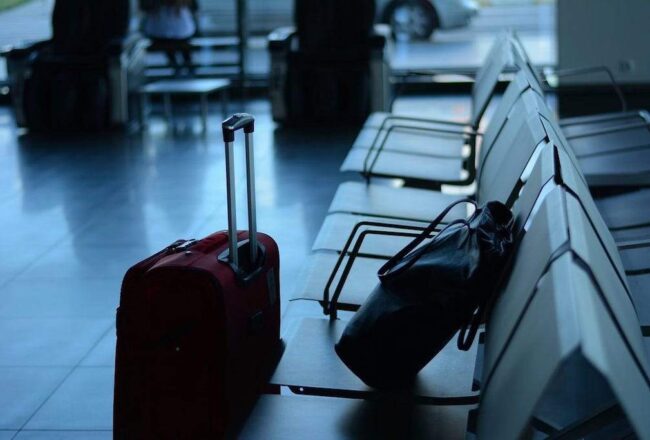Journeys to the United States can be an exciting adventure, presenting an extensive selection of things to see and do across its 50 states. However, like any trip abroad, it carries certain challenges and possible hazards.
Here, we will equip you with crucial information to ensure your journey is not just enjoyable, but also safe.
Investigate Your Destination
Utilising online platforms such as travel blogs and social networks is an effective strategy for getting up-to-date advice and firsthand experiences from fellow travellers to the US. Nevertheless, verifying this information against reputable sources is essential to ensure its reliability.
Acquaint yourself with the local public transport systems as this can make it easier to get around safely. Identifying areas that are best avoided, particularly during nighttime, is also a good idea.
Understanding the local customs and behavioural norms is equally important. This includes understanding appropriate attire and conduct, especially in conservative locales or religious sites. Staying informed about the local news is beneficial as well, as it can alert you to immediate security issues in the area, such as areas where pickpocketing is a common issue, or ongoing public protests. Being well-informed will help you make sensible decisions for your safety.
Learn About Emergency Protocols
Being prepared for emergencies is essential for a safe journey. Dial 911 for urgent assistance involving the police, fire services or medical situations. For less urgent police matters, you should also learn the local non-emergency number, which varies by location.
Additionally, keep the contact details of your embassy at hand for issues such as lost passports or legal complications. Be aware of the nearest hospitals and pharmacies, and if you’re driving, research the contact number for roadside assistance. It is sensible to note these numbers down physically, in case your mobile device is unavailable. You can also download various apps to provide you with updates on emergencies, and guide you to the necessary assistance.
Opt for Trustworthy Transport
Selecting reputable transportation options is vital for safety. Authorised taxis and well-known services such as Uber and Lyft are generally dependable, but even in these cases, you should always verify the driver’s identification. Public transport is typically safe, but extra caution is advised during nighttime. At airports, opt for official taxi services or shuttle buses.
Exercise caution with drivers who insist on cash payments or avoid using the meter, as these could be fraudulent practices. Most transportation methods accept card payments and provide receipts. Use GPS to verify your travel routes.
Whenever feasible, travel in groups, particularly at night or in unfamiliar territories, and make sure you inform your friends or relatives of your itinerary. You should also seek assistance from staff or security personnel at transportation hubs for additional safety.
Prioritise Online Safety
You should always safeguard your digital information while travelling. Use strong passwords and multi-factor authentication (MFA). Steer clear of unprotected public Wi-Fi; access only secure websites, and utilise a VPN when necessary. Regularly update your devices with the latest security patches.
You should also physically protect your devices with screen locks, and avoid leaving them unsupervised. Regularly check your accounts for unusual activities and back up your data. Install trusted antivirus software, and exercise caution with unexpected personal information requests.
Respect Local Regulations and Traditions
Understanding local regulations and traditions is key to avoiding complications. Laws regarding traffic, age restrictions and substance consumption vary across US states, so you should familiarise yourself with the specific legislation of your destination. Be aware of cultural norms regarding dress code and behaviour to respect the local community.
Consult official state websites and travel manuals to grasp these regulations. You should also continually seek the most recent information, particularly if your itinerary includes activities like driving or outdoor pursuits.
Safeguard Your Belongings
Secure your possessions, especially in crowded tourist spots. Utilise hotel safes or the front desk’s secure storage, and opt for money belts and theft-resistant bags. Store copies of vital documents in different locations, and choose RFID-blocking wallets to thwart electronic theft. You should also make sure to be discreet if you’re carrying valuables around.
Finally, it’s always best to employ TSA-approved locks and tracking devices on your luggage. Maintaining an inventory of your possessions, accompanied by photographs, is useful in situations when something does get stolen, so you can prove what happened.
Stay Alert in Congested Areas
Remain vigilant in crowded locations, as they are magnets for pickpockets. If you’re carrying cash or valuables, do so discreetly, opting for bags that can be securely closed, and keep them within your field of vision. Avoid distractions, and be wary of individuals attempting to divert your attention.
You should also devise a strategy if travelling in a group, and ensure your mobile device is ready for emergencies. Promptly report any thefts or scams to boost the chance of retrieving your belongings if something does go wrong.
Stay Informed and Connected
Keep up to date on news and travel advisories regarding your destination. You should register with governmental travel services for emergency assistance and communicate your itinerary with someone back home; you should also make use of travel safety apps for sharing your location and accessing emergency contacts.
Ensure your mobile device is fully charged, consider acquiring a local SIM card for improved network coverage, and note down critical contact numbers. Also, be careful about your social media postings, adjusting your privacy settings for security, and do not post about where your accommodation is.
Take the Local Weather Seriously
The varied climatic conditions in the US can affect your safety in various ways. Monitor weather reports and prepare for seasonal hazards, such as hurricanes or blizzards, and pack an emergency kit containing essentials like water and first-aid supplies.
Dress suitably for the prevailing weather and heed advice from local authorities, and make use of weather apps for updates. It’s also a good idea to familiarise yourself with the emergency exits and evacuation procedures of the place where you’re staying, in case something does go wrong.
Prepare for Medical Contingencies
The substantial cost of healthcare in the US means that it pays to be prepared for potential medical issues. Secure travel insurance that encompasses medical coverage, and know the locations of hospitals and emergency facilities. You should also bring a first-aid kit, document any health conditions, and ensure prescriptions are clearly marked.
Additionally, keep emergency contacts readily available and take time to learn the direct contact numbers for local medical centres, and consider obtaining legal counsel in case of an accident.
Should you encounter an accident in the US and need to make a holiday accident claim, understanding the importance of legal support is key. The American legal framework is intricate, particularly for non-residents. Legal assistance offers crucial guidance on your rights, and the appropriate steps to follow post-accident.





No Comment